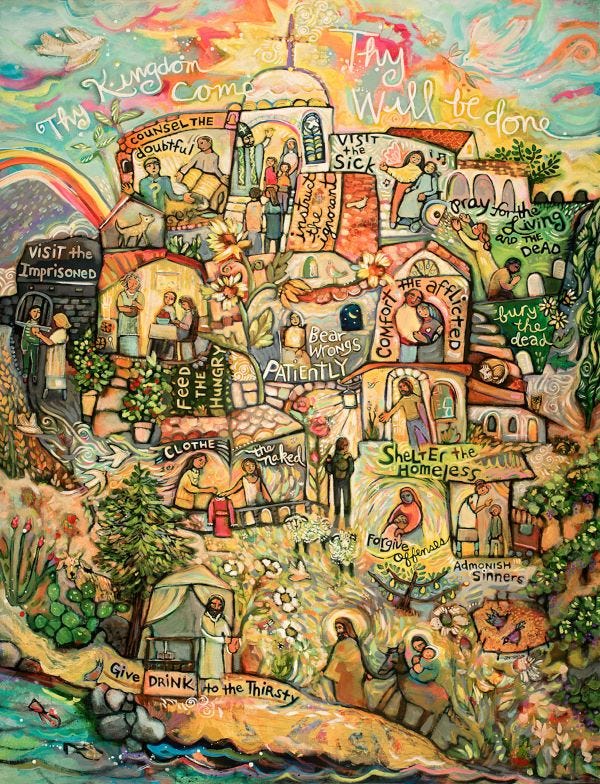Why pay for a Roundtable subscription?

Hi, I’m Jerry, editor at Roundtable and its parent website, CatholicWorker.org, and I’m here to answer some of the most common questions about paid subscriptions.
Roundtable is free, so why should I pay for it?
Every issue of Roundtable will always be free. That’s because we want the vision and work of the Catholic Worker Movement to become known as widely as possible. We also don’t want to impose barriers or burdens on those who can’t afford it—especially the Catholic Workers living in houses of hospitality.
That said, Roundtable and CatholicWorker.org aren’t “free”: we pay for website hosting, software subscriptions, and other incidental costs. These publications also take a lot of time to create and maintain. The bulk of your subscription pays for the work of creating Roundtable and CatholicWorker.org.
Can’t volunteers do the work?
Maybe.
For many years, CatholicWorker.org was developed and maintained by volunteers (mainly Jim Allaire, founder of the website). Back then, it mainly hosted a searchable database of Dorothy Day’s writings, some historical and background material, and a directory of Catholic Worker communities.
Since I took stewardship of the website in 2022, I’ve strived to add content that showcases contemporary expressions of the movement, too—essays and articles reprinted from CW publications, an events calendar, some news reporting. It seemed important that the website’s 10,000 monthly visitors see what the Catholic Worker Movement looks like now, 90 years after its founding.
This “newsy” iteration of CatholicWorker.org and its spinoff newsletter reflect my journalism background. We aspire to report on the Catholic Worker Movement in all its diversity while adhering to the highest standards of professional journalists.
The thing is, that level of reporting requires a consistent level of commitment. Could we eventually round up a team of volunteers who could pull that off week after week? Maybe things will evolve in that direction, but that’s not our situation as we get going.
Speaking for myself, I love reporting on the Catholic Worker enough that I would gladly do it for free, if I could. The reality is, I’m already volunteering quite a bit of time every week; I’m raising four kids; and the main way I support my family is through freelance writing and editing. To invest as much time into this project as it requires means I need to ask for financial support.
Aside from these circumstances, there is also the principle of valuing skilled writing and reporting. As more traditional media institutions and local newspapers fold every week, we need to find other ways of maintaining quality journalism. Regardless of what the former president might think, good journalism is a skilled trade. If we want good journalists, we need to value their work.
That’s why I hope Roundtable subscribers will eventually provide enough financial support for us to be able to compensate all our contributors at fair rates—especially the Catholic Workers who allow their writing to be published on CatholicWorker.org and Roundtable.
But does the Catholic Worker Movement need a weekly online newsletter?
Nope, it doesn’t need Roundtable…or any other publication, for that matter.
But let’s also remember that the Catholic Worker Movement started with the newspaper. There’s a good reason that Peter and Dorothy began by spreading news about the social doctrine of the Church, and their own “social program,” as widely as possible. Back in 1933, hawking a newspaper in Union Square was the way to do that.
Does the Movement still need to go into the public square to promote a new social order, one informed by the Gospel? I would answer “yes,” and that the best way to do so is by showcasing the stories of Catholic Workers doing the spiritual and corporeal works of mercy in a myriad of creative ways today.
Our hope is that Roundtable and CatholicWorker.org inspire readers to adopt the Movement’s ideals in their own lives, take real action to promote “a world where it is easier to be good,” and support local Catholic Worker communities with their time and money. That’s why we publish an events calendar and community appeals in each issue.
At the time of this writing, Roundtable is read by about 2,000 people every week, and CatholicWorker.org serves 10,000 unique visitors each month. The extent to which we move these readers to make the world a better place will be the measure of these publications’ success.
If you agree, and you have the means to do so, I hope you will consider supporting our work with a paid subscription.
Warmly,
Jerry Windley-Daoust




